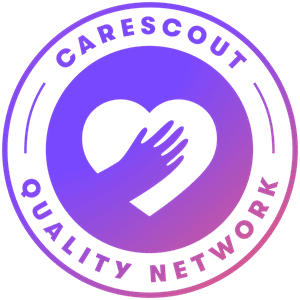With bodily changes that occur over the years, reactions to things like medication also change. Even though over-the-counter (OTC) drugs are sometimes thought of as secure and convenient, it’s important for seniors to understand the possible risks connected to these seemingly innocent treatments. This blog takes a look at some popular over-the-counter drugs that might cause issues, as well as giving loved ones and the companion care at home team the information they need to support seniors.
Understanding the Impact Common OTC Medications Might Have
The following information can help the companion care at home team and seniors be mindful of what medications they take. As always, questions should be addressed with the medical team.
- NSAIDs, or Non-Steroidal Anti-Inflammatory Drugs: NSAIDs for pain and inflammation relief, such as ibuprofen and naproxen, are widely used. On the other hand, chronic use or large dosages may cause kidney difficulties, gastrointestinal distress, and a higher risk of cardiovascular events. Seniors should use NSAIDs carefully and ideally with medical advice, as they may already be managing pre-existing problems.
- Anti-Histamines: It is common practice to treat allergies and control symptoms like sneezing and itching with over-the-counter antihistamines. However, they can make seniors feel sleepy and lightheaded, raising their chance of falling. With companion care at home, seniors are monitored and kept safe, but caution should still be used when seniors are on their own. Older people, who may already be at risk for illnesses like dementia, also run the risk of cognitive impairment as a result of sedating antihistamines like diphenhydramine.
- Decongestants: Decongestants, which are frequently present in treatments for the flu and cold, can raise blood pressure. In addition, using these drugs can raise cardiovascular risks in seniors with hypertension. Seniors must choose alternatives devoid of decongestants or ask their healthcare physician about appropriate alternatives.
- Acetaminophen: Acetaminophen is usually safe when used as prescribed, but if taken in excess, it can seriously harm the liver. The companion care at home team should encourage seniors to exercise caution while taking numerous acetaminophen-containing drugs.
- Intestinal Aids: Among the OTC digestive aids that seniors most frequently use are laxatives and antacids. But a reliance on these drugs can hide underlying problems and result in electrolyte abnormalities or dependence on the digestive system. In order to address the underlying reasons for digestive issues, seniors should speak with medical professionals.
- Sleeping Supplements: Seniors frequently suffer from insomnia, which makes them prone to using over-the-counter sleep medications. But these drugs can also have side effects that last into the next day, leaving them tired and less able to think clearly. With the help of the companion care at home team, seniors can explore non-pharmacological sleep aids, like creating a regular sleep schedule and improving their sleeping environment.
Even though over-the-counter (OTC) drugs help alleviate a variety of diseases, seniors should proceed cautiously when using them. It is also important to speak with medical professionals before self-medicating since they may offer tailored guidance based on a patient’s medical history, current prescriptions, and any drug interactions. With help and support from the medical team, loved ones, and home care, seniors can feel comfortable knowing they’re making the right choices.
If you or an aging loved one are considering Companion Care at Home in Omaha, NE, please contact the caring staff at Caretech today! Call (402) 697-5121
Caretech provides the best care services for seniors and families throughout Nebraska including Omaha, Lincoln, Bellevue, Grand Island, Kearney, Fremont, Norfolk, Hastings, Columbus, Papillon, North Platte, La Vista, Scottsbluff, South Sioux City, Beatrice, Lexington, Chalco, Gretna, Gering, York, and surrounding areas.
- 5 Ways to Make Sure Your Parent Is Safe From Winter Storms - January 2, 2025
- Four Signs It’s Time to Consider Respite Care and Why Breaks Matter - December 19, 2024
- Introducing Caretech’s New In-Home Care Services: Supporting Families, Empowering Lives - December 11, 2024







